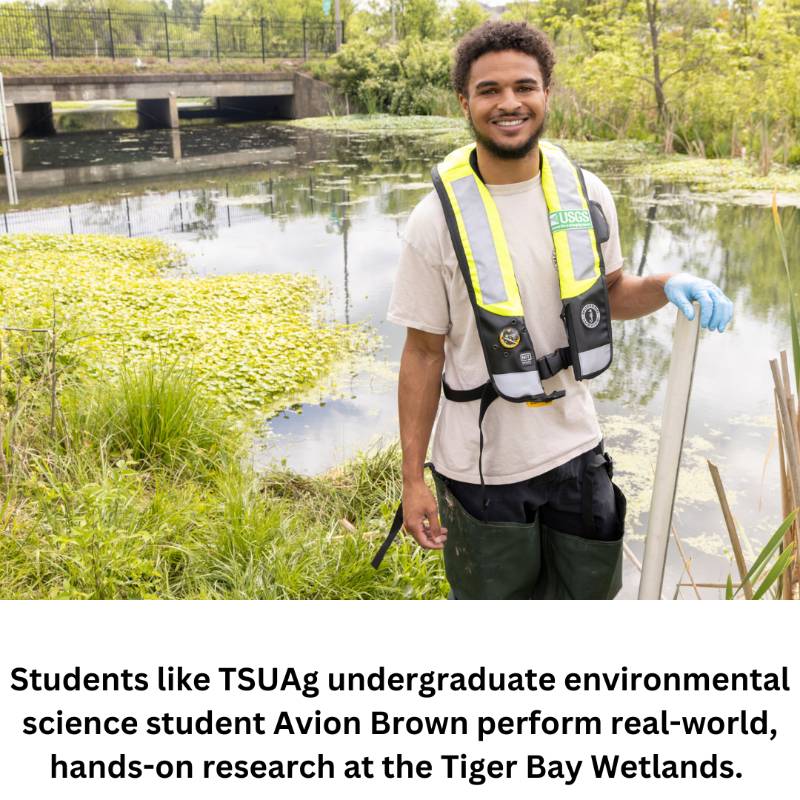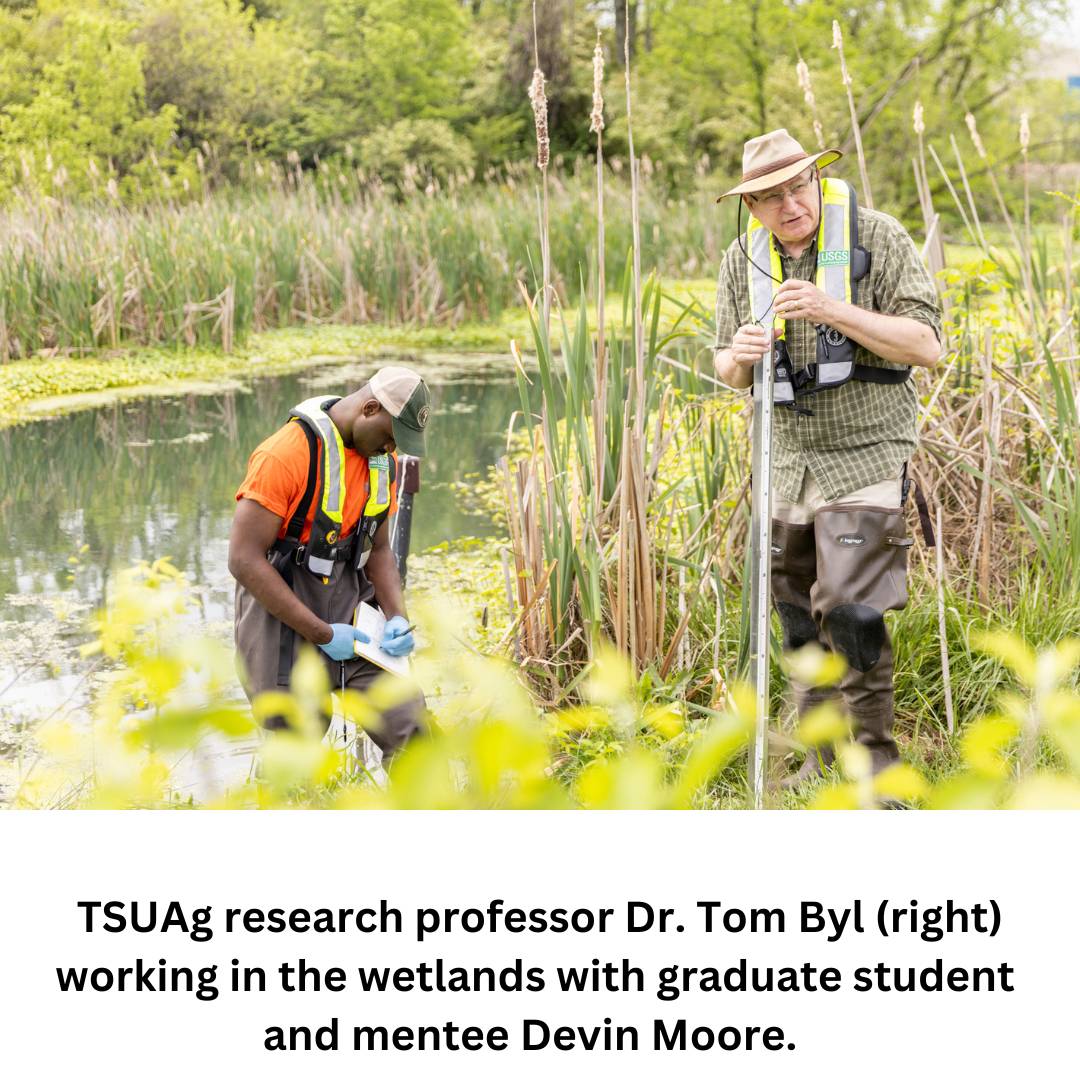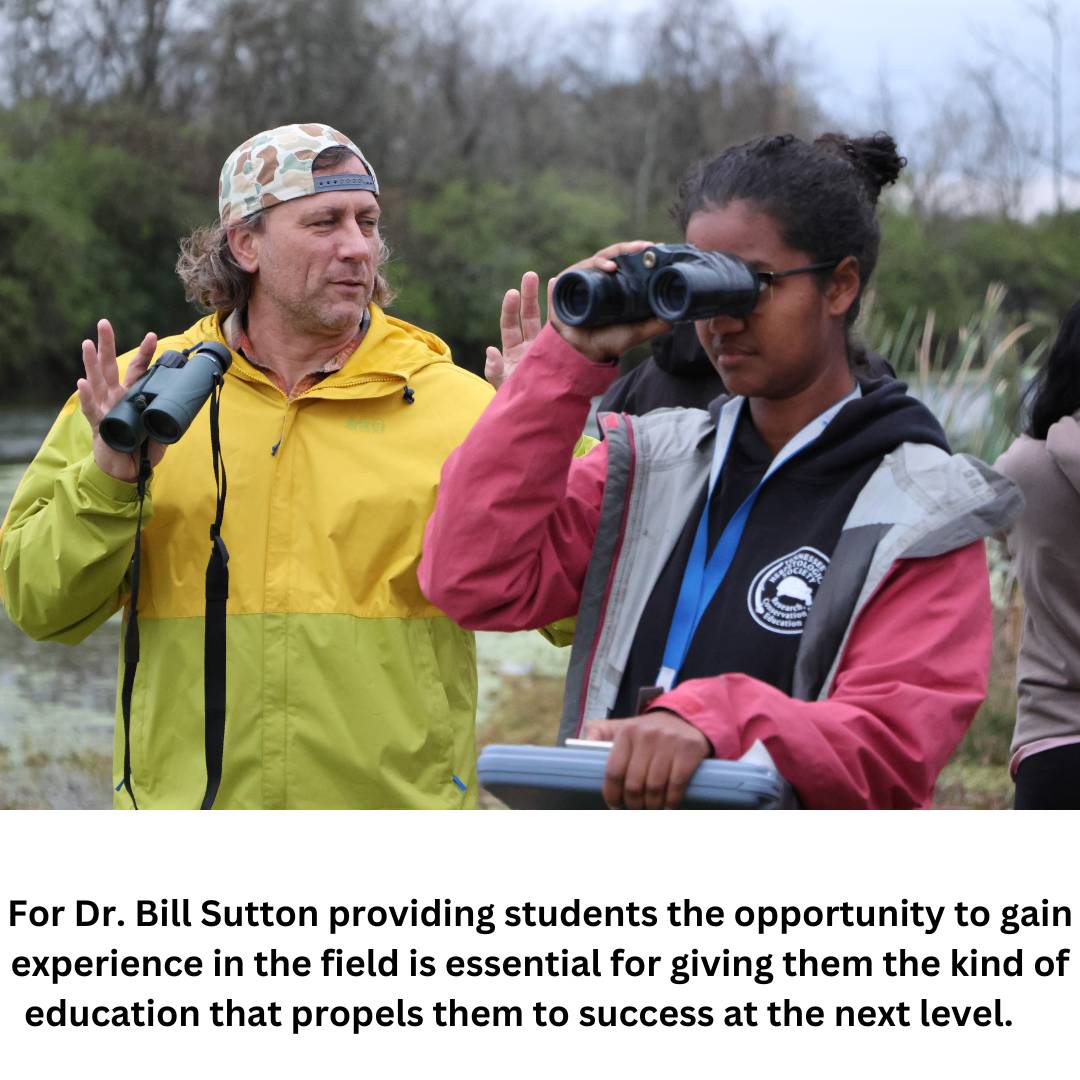- Home >
- College of Agriculture
- > Tiger Bay Team Takes Shape
The Tiger Bay Wetlands restoration project officially launched this winter, led by a collaborative team from Tennessee State University’s College of Agriculture (TSUAg). With the support of public and private partners, TSU is taking significant steps toward rehabilitating this vital ecosystem.

Representatives from TSUAg, the Nashville Metro Government, the Cumberland River Compact, and Resource Environmental Solutions recently took the first step in a $5 million USDA Forestry Service-backed project. They began restoring the wetlands to its natural state by conducting a site delineation (surveying). With that done, the team truly begins the implementation phase of the project.
The project to restore Tiger Bay took shape after a collaborative team from TSUAg secured a grant from the USDA Forestry Service. The project, titled the “Restoration of an Urban, Forested Wetland at Tennessee State University to Improve Educational Opportunities and Ecosystem Services,” will restore the forested environment and free it from invasive species.
Associate Dean for Academics and Land-grant Programs Dr. De’Etra Young is the principal investigator for the grant. She stated that TSU scientists and students will assist in the restoration of this forested wetland ecosystem, which will improve the ecosystem services that the wetland provides, along with experiential learning opportunities.
“Tiger Bay is a unique asset we’re lucky to have right here on campus,” Young says. “Restoring it is important, and our partnership with the USDA Forestry Service, the Nashville city government and non-profit and for-profit environmental firms is critical to our being able to execute this grant in full.”

Young continued to note that restoring the wetland will also provide a pristine research environment for TSU students who can utilize this opportunity to develop real-world skills that will set them apart in their post graduate job search. “It’s our responsibility to preserve this unique asset for future generations of research students, and this team we’ve assembled will help us greatly in meeting that responsibility.”
Reportedly the largest single USDA Inflation Reduction Act investment in urban and community forests, the $1 billion grant program is being managed by the USDA Forest Service’s Urban and Community Forestry Program.
Young shared that successfully executing the grant and bringing the project to life began with assembling the right team . TSUAg faculty members Drs. Bill Sutton, Tom Byl, Sarah Neumann, Yujuan Chen, Jason de Koff and Reginald Archer are all participating in the rehabilitation program.
Forestry management is key to Tiger Bay’s rehabilitation. Urban Forestry professors Drs. Neumann, Chen, and Young will identify invasive species for removal and select new tree species to enhance the ecosystem's health.

While Dr. Reginald Archer will create geospatial and topographic maps of Tiger Bay’s natural resources, Dr. Sutton and Dr. Byl will focus on wildlife and vegetation considerations.
Dr. Sutton is leading the wetlands restoration, partnering with Resource Environmental Solutions to remove invasive species and replant native ones. “We are planning a full-scale wetland restoration to remove invasive species and to re-plant with native species,” Sutton says.
Dr. Byl will focus on hydrology and water quality to support a healthy TSU wetland ecosystem. Excessive nutrients at Tiger Bay have fueled cyanobacteria and toxic algae blooms for years, and this project allows Dr. Byl to build on his 20 years of wetlands research.
“The wetland has tremendous value, and we are very lucky to have it so convenient to our campus,” says Dr. Byl. “Our goal is to revitalize the wetland, make it more accessible to the TSU community and the public, and preserve it as critical greenspace and habitat for wildlife.”
“Our goal is to revitalize the wetland. We also want to make it more accessible to the TSU community and the public. The wetland serves as a critical habitat for migrating waterfowl, local birds, turtles, beavers, fish and other animals.”
To learn more about the College of Agriculture, visit www.tnstate.edu/agriculture/ .



